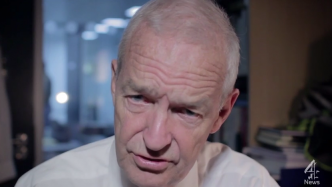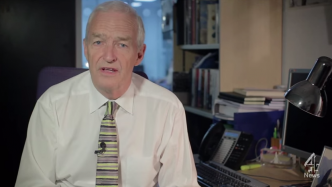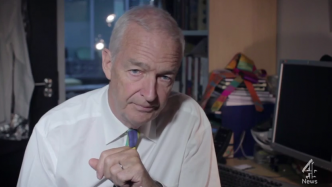He has made those comments about David Cameron, although its not quite what was briefed and it was not quite what the Conservatives were so outraged about. He talks about David Cameron’s shared responsibility for the failure of “post conflict planning” in Libya, but he doesn’t directly link that failure to deaths in the Med.
Here they are:
“Now these global trends are unavoidable, that’s true, but the crucial truth that we must acknowledge is that the difficult Britain faces in navigating its new global order I believe is being made far worse than decisions our own government has made.
“My case is that David Cameron has presided over the biggest loss of influence for out country in a generation. And that has happened because the Government he leads has stepped away from the world rather than confidently towards it.
“I believe it is an approach that has shrunk our influence and weakened Britain and the evidence for that is all around us, take the situation of Russia and Ukraine. Was there ever a more apt symbol of Britain’s isolation and waning influence than when David Cameron was absent as the leaders of Germany and France tried to negotiate peace with president Putin.
“And we have seen it this week with regards to the crisis unfolding in the Mediterranean. In Libya Labour supported action to avoid the slaughter and stop the Gaddafi regime, the threats they made to Benghazi, but since the action the failure of post conflict planning has been obvious.
“David Cameron was wrong to assume that Libya was a country who’s institutions could simply be left to evolve and transform themselves. What we have seen in Libya is when tensions over power and resource began to emerge they simply reinforced deep seated ideological and ethnic fault lines in the country, meaning the hopes of the revolutionary uprisings quickly began to unravel.
“The tragedy is this could have been anticipated and ti should have been avoided. And Britain could have played its part in ensuring that the international community stood by the people of Libya in practice rather than standing behind the unfounded hopes of potential progress only in principal.”
































































